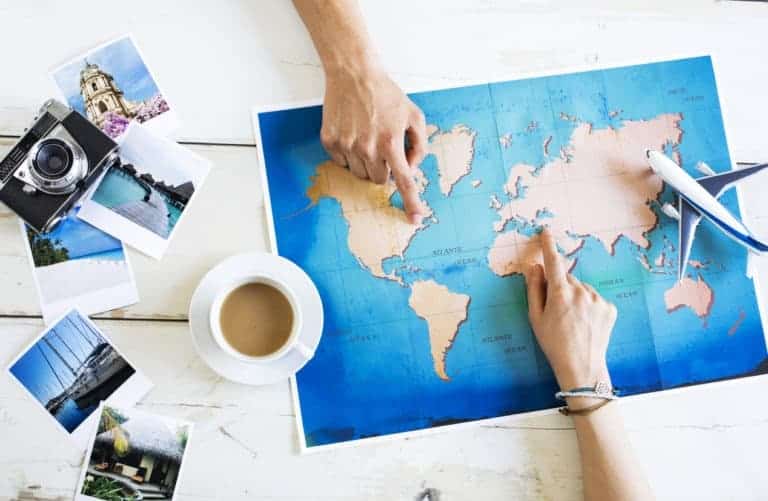
If you are over 80, you may want to consider getting travel medical insurance. The premium for such a policy will depend on your individual circumstances, so make sure to check the fine print. This policy should be able to cover seniors who have an immediate onset condition or need to repatriate their remains in the event of an untimely death. Travel medical insurance for seniors over 80 is available from many insurance companies, so it is important to shop around for the best deal.
Pre-existing conditions are not covered by travel medical coverage for seniors over 80
Travel medical insurance for seniors older than 80 years does not include a pre-existing condition clause. Pre-existing condition are any conditions that an individual may have had prior to coverage. These conditions may include injury, illness, and any disease that has been or is about to become acute. They could also be permanent or recurring. Each policy offers a different lookback period.
Some policies for travel medical insurance do not cover preexisting conditions. Other plans may cover pre-existing conditions if they were incurred within the previous 120 days of purchase. Some conditions are excluded from coverage, including high cholesterol, vision impairment and hearing loss, as well certain psychological conditions. Some companies may also exclude these conditions if they were diagnosed within the last five years.

Seniors over 80 are eligible for travel medical coverage.
Senior travelers can be worried about the expense of travel insurance when they travel to another country. Senior travelers have a variety of options. Some plans offer less coverage and are more expensive. Choosing travel medical insurance for seniors over 80 is crucial for avoiding unnecessary medical expenses and spending more money on trip delays or cancellations. Senior travelers who are over 80 may also find the costs of the plan prohibitive. To make matters worse, the cost of travel medical insurance for senior travelers may be much higher than you thought.
Seniors who have complicated medical histories need travel medical insurance. Finding the right policy for your needs is difficult, whether you have recently had surgery or experienced a heart attack. However, there are options to make your insurance coverage more affordable for your senior years. There are some policies that are more affordable than others, particularly if you travel often with your spouse or older children. You can also find affordable travel medical insurance through some insurance companies.
Personalized coverage determines the premium and eligibility
Many elderly relatives visiting the United States are 80 years old or older. Insurance companies usually consider the age of their customers when deciding on coverage options and premiums. Seniors over 80 are eligible for a lower amount of travel insurance. But, there are still many options. Here are some of these options. A travel medical policy is a must if you intend to travel in the future.
Personalized travel medical insurance policy is an innovative product that uses advanced data analysis and technology to provide tailored coverage and pricing. This type of travel insurance policy is perfect for snowbirds and senior citizens as they can find a policy that suits their needs. Personalized travel medical insurance policies are designed to evaluate each applicant's age and health as well as the duration of their trip and calculate base premiums.

Choosing between limited coverage and non-limited coverage
It is important to choose a travel insurance policy if you plan on traveling abroad. Many domestic insurance policies don’t cover overseas travel, but visitors insurance policies do. There are two main types of policies: the fixed benefits plan, also known by limited coverage, and the comprehensive coverage plan, which provides more coverage. Although limited coverage plans are often cheaper, they may not cover all of your overseas costs.
For seniors over 80, the best travel insurance includes excellent emergency medical coverage and evacuation coverage. Even though the cost of treatment abroad might be higher than in your home country, an insurance plan will help you to avoid language barriers. It will also cover the costs of ambulance services, hospitalization, diagnostic tests, and prescription medicine. You should look for a travel medical insurance plan that offers comprehensive coverage to ensure the financial safety of your trip.
FAQ
What snacks should I bring to the plane?
You have many options for snacks to take with you when flying. Consider bringing along any food that you are fond of while traveling.
You could pack, for instance, chocolates and other chocolate-related treats.
For something more savory, you might want to pack cheese or crackers.
It is also important to consider the type of beverages you'd like to bring onboard. Maybe you prefer hot or cold drinks?
Whatever type of snack or drink you decide to bring along, make sure they are all packed safely and securely.
It will be easy to transport them without worrying about them being damaged.
What should you do first when you arrive at your destination?
You should always have an itinerary for when you arrive at a place. This helps you to know what to expect and where you should go next.
To avoid missing anything, you need to plan ahead.
You should also research what museums, parks, or landmarks you want to visit if you are planning to visit a city more than once.
A map of the area is a great way to start researching the region's past.
How can I prepare my body to go on vacation?
To live a healthy life on vacation, you need to eat well and exercise.
You should also ensure you are well rested and hydrated before leaving home.
Be sure to have all your travel documents and medications on hand.
And if you're planning to take any medication during your trip, ensure you carry enough to last until you return home.
In case of injury or sickness, always have an extra set of clothes.
How long does a flight take between two countries.
The distance between the airports, as well the weather conditions, can impact the time required to fly.
The average flight takes around 3 hours.
However, the actual flying time depends on several factors such as the airline, the aircraft type, airport delays, and weather conditions.
What documents should be kept handy while on the road?
To make it easy to find important documents on the road, keep copies at home. If you plan on using an ATM machine, you may want to keep a copy of your passport, driver’s license and other official identification cards.
It's always a good idea for you to have a photocopy with you of your passport in case you need it.
Make sure to keep a copy of your itinerary and any reservations. These will help keep you organized and allow you to plan your trip.
As well as this, you should keep a copy of your flight ticket and hotel reservation details. If you have any problems, you can always contact someone back at home.
You should never leave valuables behind. Your valuables will be safe if you keep them in a money belt, or inside your luggage.
Check your bag before you go to prevent losing expensive items.
Remember, it's safer to keep things simple rather than trying to plan everything.
So just relax and enjoy your journey!
Statistics
- No Checked Bags: No Alcoholic beverages with more than 70% alcohol (over 140 proof), including grain alcohol and 151 proof rum. (tsa.gov)
- Alcoholic beverages with 24% alcohol or less are not subject to limitations in checked bags. (tsa.gov)
- Case in point: the private island of Ilha Caldeira, less than seven miles off the coast as part of the Primeiras and Segundas Archipelago, is located within the marine-protected area with 20 percent of the country's intact living coral. (travelandleisure.com)
- Between the ages of 11 and 13, kids, or tweens, will likely want some autonomy but also need boundaries. (travelandleisure.com)
- You can use compression sacs or cubes to reduce the volume of your clothes by up to 80%—this is especially convenient for bulky items such as sweaters and jackets. (eaglecreek.com)
External Links
How To
How to plan for your next vacation
Planning a trip includes many things such as booking flights, hotels and car rentals. You must also consider your budget, destination, weather forecast, and other important factors.
These are important points to remember when planning your next vacation.
To ensure you get everything right, we have created a step-by-step guide to help you plan your next vacation. Based on customer feedback and our own experience, this guide was created. We hope you find this guide helpful and easy to follow when planning your next vacation.
Steps:
-
Plan your Budget - This is the most important step to take when planning for a trip. You must know how much money you want to spend on your trip before you start thinking about where to go and what to do. You might have to cancel your plans if you don't have enough money.
-
Book Flights – After setting your budget, you must book your flights. Find the best price and lowest flight deal. Make sure to check for special offers during peak seasons. These deals may save you money.
-
Choose Your Destination - Once you've booked your ticket, the next thing you'll need to decide is where you'd like to travel. When choosing your destination, many factors are important. These include location (where you are going), climate (what time of year), culture (how friendly the people) and cost (how much it is).
-
Find Accommodations. You have many accommodation options, from hostels and luxury suites to choose from. The best type of accommodation for you depends on your requirements and preferences. If you are looking for somewhere close to the center of the city, a hotel might not be the best option. If you prefer quiet, peaceful places, a homestay may be the best option.
-
Select Activities & Attractions - After selecting your accommodation, now is the time to select the activities and attractions you wish to include in your itinerary. You have the option to choose a handful of activities or add more depending on the length and duration of your stay.
-
You can now determine your schedule. Sticking to a plan will help you maximize the value of your trip. However, if you're free to move around at your convenience, you can enjoy your trip even more.
-
You can create an itinerary by creating itineraries. These information can include flights, accommodations, activities and restaurants. You will need to record them all and make a list.
-
Research Online - Before leaving for your trip, research online so you won't miss anything. Read reviews and testimonials to find out what other travelers think about different destinations. This will help you plan.
-
Pack Lightly - One of the biggest mistakes people make when packing is bringing too many clothes. Instead of bringing five sets of clothes, bring three. Make sure you bring clothes that are appropriate for the area.
-
Always be prepared Make sure you have everything prepared before you go. It's not a good idea to spend time looking for documents while you are still on the move.